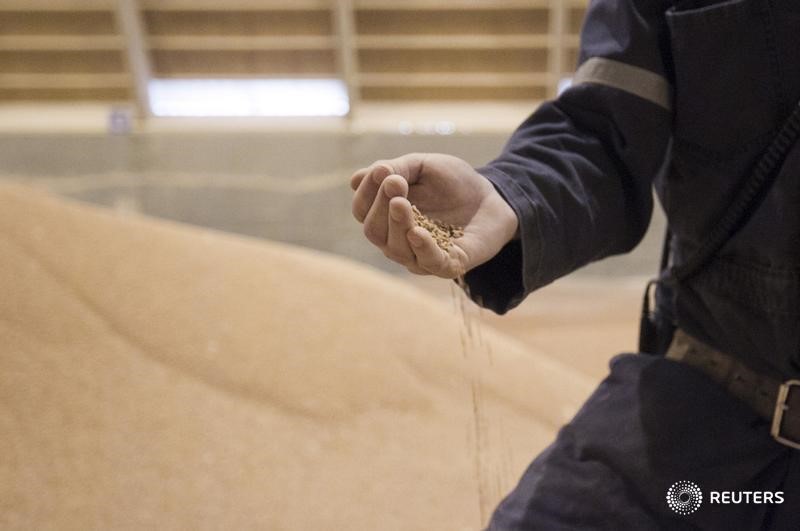* EuroChem plans to produce 8 mln tonnes a year by 2024
* Potash market now dominated by handful of players
* Company sees global potash demand growing 2 pct a year
By Polina Ivanova
MOSCOW, Nov 12 (Reuters) - Fertiliser producer EuroChem said it would produce less potash than originally planned this year and would delay the launch of its second plant to the first half of 2019, making its entry into the competitive market more gradually than planned.
Russian-controlled and Switzerland-based EuroChem, which opened its first potash plant in March and plans to produce more than 8 million tonnes a year by 2024, is entering a market traditionally controlled by a handful of players.
Russia's Uralkali URKA.MM , Belarusian miner Belaruskali and Canada's Potash Corp of Saskatchewan POT.TO dominate the market. Canada, Russia and Belarus are the world's top producers of the crop nutrient.
"We will be quite prudent ramping up our projects," EuroChem Chairman Alexander Landia told Reuters. "Definitely potash prices will have some pressure through the new projects coming on stream."
"We would like to avoid disruptions of the market but we are going to bring the project on stream, so therefore there will be a certain excitement," he said.
The company, controlled by Russian businessman Andrey Melnichenko, initially expected to make 500,000-600,000 tonnes of potash this year from its new Usolskiy plant, near Russia's Ural mountains. It now expects to produce about 300,000 tonnes.
"We are producing already on an industrial scale and that's the start of the ramp up, but with lower volumes than we expected originally," he said, describing the change as normal in the ramp up process. He did not elaborate.
He said the start up of EuroChem's second plant, VolgaKaliy, that was previously scheduled for this year was now expected to take place in the first half of 2019. He did not elaborate.
EuroChem expected global potash demand to grow at about 2 percent a year, said Tom Luigs, head of potash and phosphates at EuroChem Trading.
"If we take an average of 2 percent, just to be conservative, the market needs 1.3 million tonnes of additional potash every year just to stay even," Luigs said.
Most of EuroChem's output would initially be used by the company, with any spot potash sales replaced by long-term contracts when the company reached output of about 2 million tonnes a year, Luigs said.
Asian, Latin American and North American markets were of particular interest to the company, Landia said.
But he said plans to develop a plant in Louisiana, first announced in 2013 and then delayed, were still on hold.
EuroChem expects potash prices to remain strong into the fourth quarter.
"We are running into an almost bare to naked market scenario with very little available from the producers," Luigs said, adding he expected the market to remain tightly balanced in the first half of 2019.
